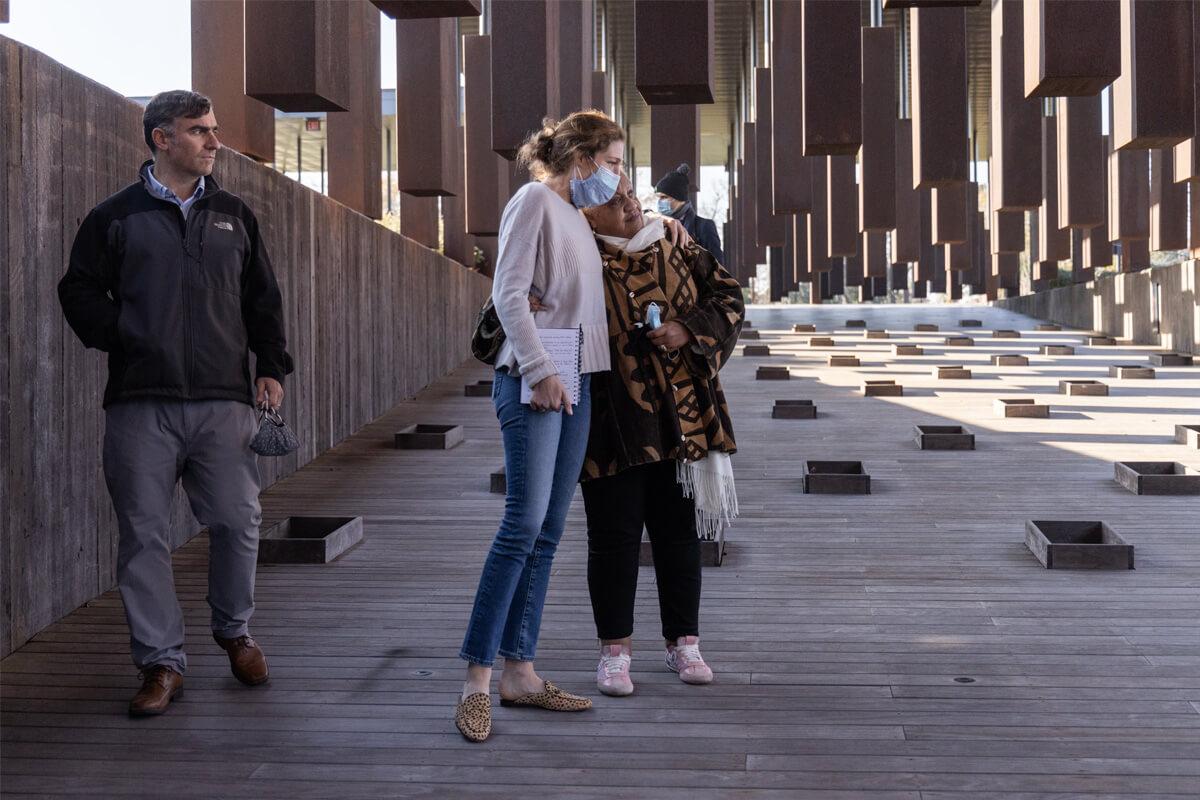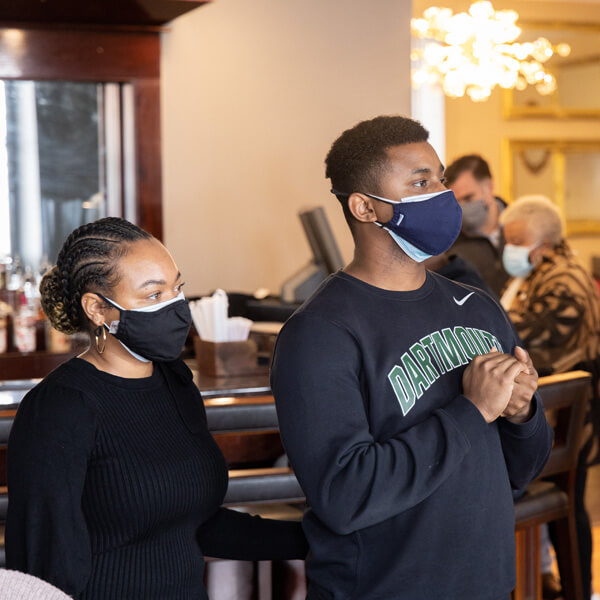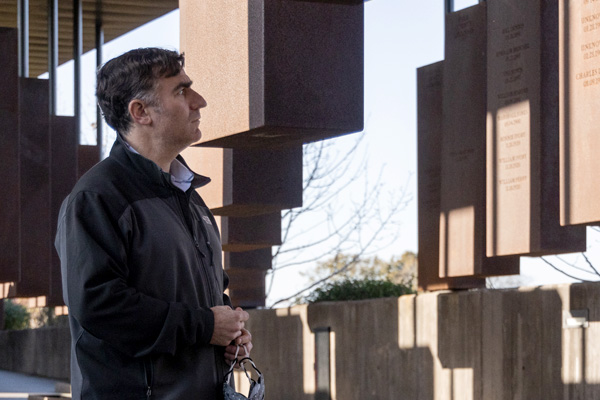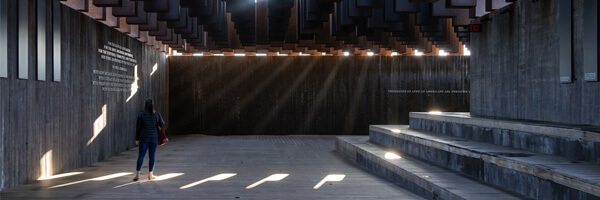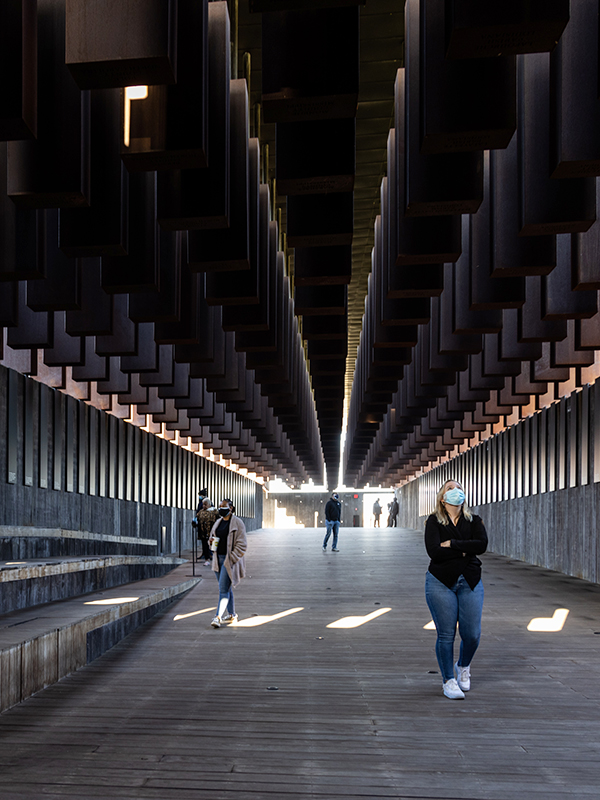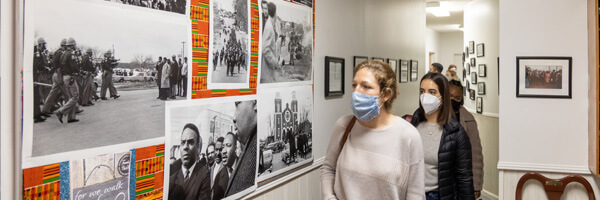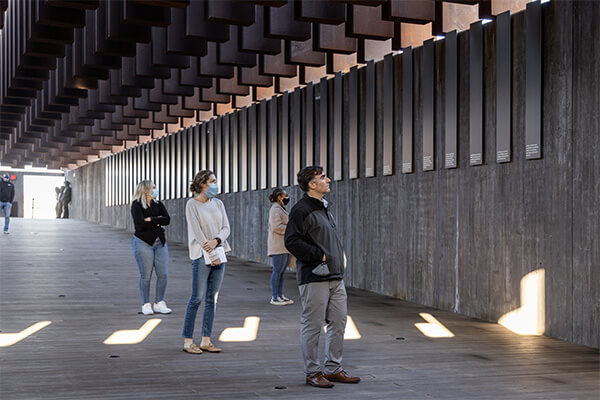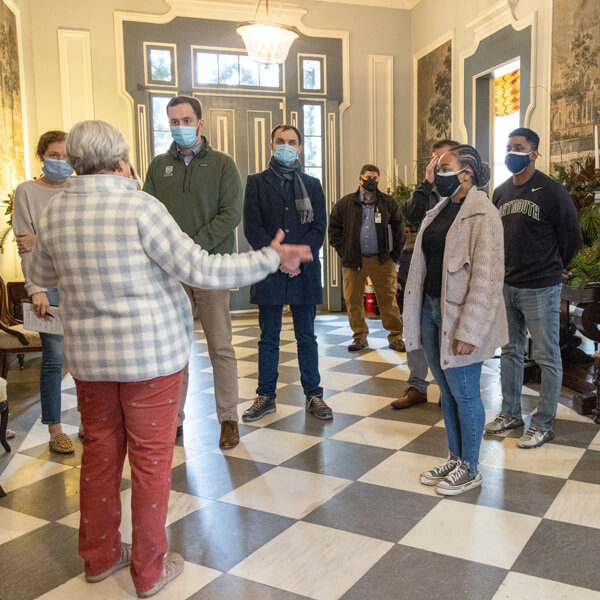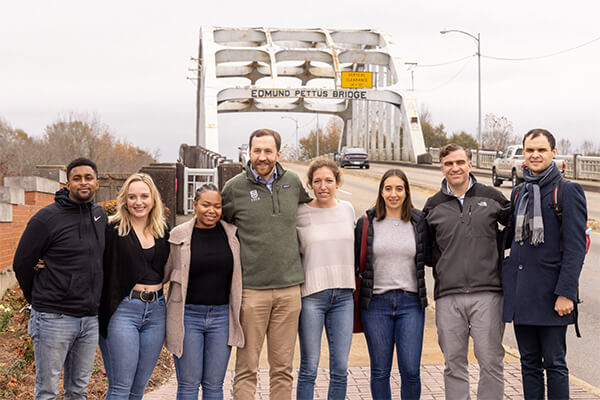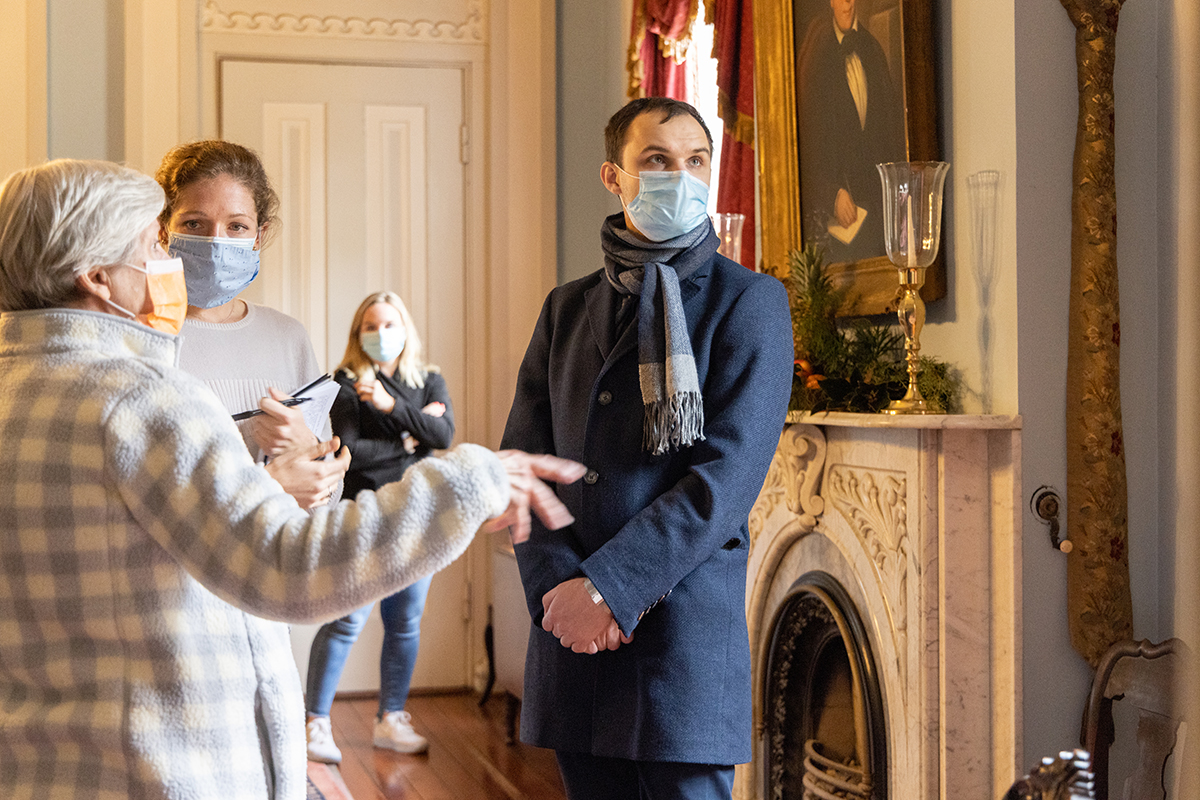On March 7, 1965, Joyce Parrish O’Neal was 17 years old, a young Black woman tending to the wounded as they flowed into the Brown Chapel AME Church from the Edmund Pettus Bridge, suffering from broken bones and open cuts. It was Bloody Sunday in Selma, Alabama, when hundreds of peaceful people marching for voting rights were brutally attacked by state troopers and deputized white residents wielding billy clubs, axe handles, and tear gas.
The events that day appeared on national television and helped persuade President Lyndon Johnson to push for federal legislation that guaranteed Black citizens their right to vote under the 15th Amendment. The Voting Rights Act of 1965 was signed into law in August; the following year, O’Neal and her mother both registered to vote at the Selma courthouse.
Recently, O’Neal recounted her experience on the front lines of the voting rights movement to a group of Tuck students and faculty who traveled to Selma as part of a new Global Insight Expedition (GIX) entitled “Freedom Riders 2021: Unpacking Systemic Racism in America and Its Impact for Leadership.” They had gathered at Brown Chapel to meet with O’Neal, and later in the day walked across the Pettus Bridge. “Joyce sang the songs they sang in 1965 and talked about that historical moment and what it was like to live in that period,” says Professor Ella Bell Smith, who designed the GIX. “It was priceless.”
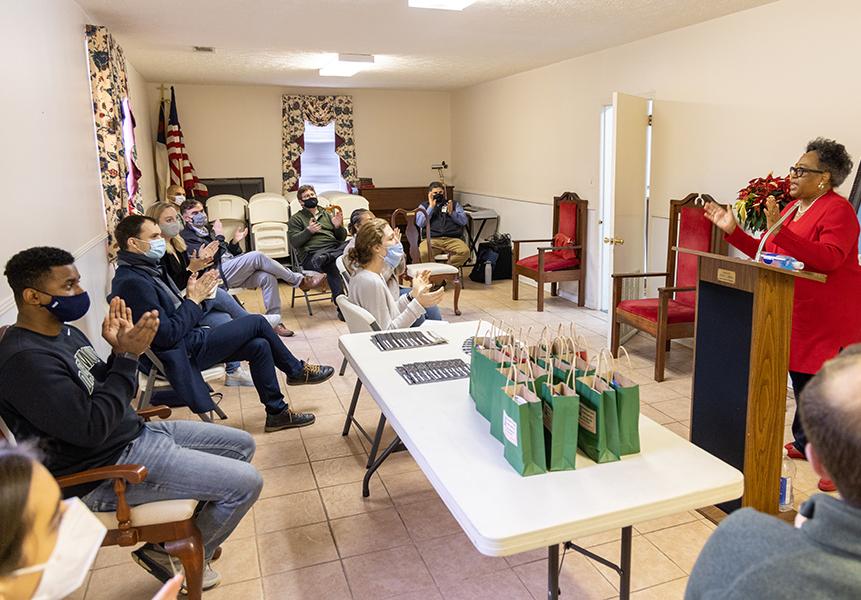
Joyce Parrish O’Neal leads the group in a song sung by those marching on March 7, 1965, in Selma, Alabama.
Bell Smith, an expert in organizational behavior and diversity, equity, and inclusion, created the Freedom Riders GIX to teach students lessons in leadership through firsthand experiences that explain the history and legacy of systemic racism. “As a diversity and inclusion consultant for companies, I know there are many ways of being diverse,” Bell Smith says. “For me, this was a different way of approaching diversity, inclusion, learning, and belonging. I wanted to give our students an experience to understand those things in a leadership context. I’m truly grateful that the Deans’ office fully supported the trip through the challenges of the pandemic and made sure we had all the safety precautions we needed.”
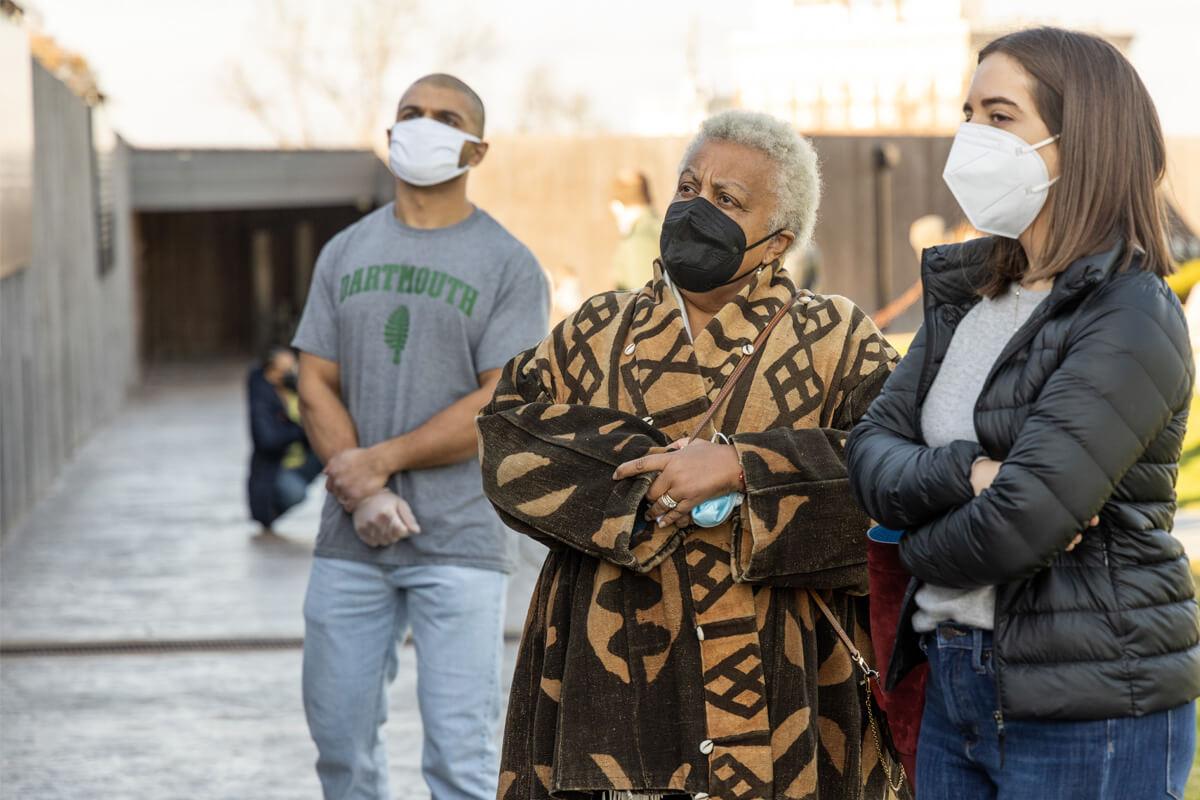
Bell Smith, an expert in organizational behavior and diversity, equity, and inclusion, designed the Freedom Riders GIX course.
Bell Smith co-taught the course with Professor Adam Kleinbaum, a fellow member of the Strategy and Management group at Tuck who specializes in organizational behavior and social networks. For Kleinbaum, the GIX was an opportunity to get out of the bubble of the Northeast, where he’s spent most of his life, and study the history and lived experience of other people. “I felt like it would help me do a better job of educating wise and decisive leaders,” Kleinbaum says, “and to lead a trip like this sends an important message to our students about what is needed in order to be a wise and decisive leader.” In addition, Kleinbaum has learned through his research on social networks how important it is to build a diverse network through interactions with people from different cultures and regions. “Having those experiences is really critical to bringing a diverse and complete set of perspectives and resources to anything we do,” he says, “as a teacher or a leader.”
Leadership for me is: How are you making a difference? How courageous are you going to be when it’s your turn to speak up?”
Professor Ella Bell Smith
GIXs are one way students can fulfill Tuck's global learning requirement. While most expeditions offered involve international travel, there are occasionally courses that study within the United States. Whether students are from a foreign country or not, the size and diversity of the U.S. make it possible to experience different communities and cultures without leaving the country. “If you think about culture as the different ways people coordinate meaning and action amongst themselves,” says Lisa Miller, the director of the GIX course, “in order to navigate different cultural spaces in an agile fashion, people need to be culturally self-aware and culturally other-aware. This experience was an opportunity to develop some of those capabilities even while staying inside the U.S.”
The eight-day trip began in Washington D.C., where the group visited with representatives from the offices of Illinois Senator Tammy Duckworth and North Carolina Congresswoman Alma Adams, and the U.S. Department of Veterans Affairs. They also met with Robert Raben, former U.S. assistant attorney general and now a consultant and lobbyist focusing on issues of public policy and strategic communications.
Raben, imparted lessons in leadership and public speaking, with a candid and narrative-driven style that captivated the room. “It was almost like a master class in how you would incite change if you were talking to 10 people in a room whom you want to have lasting takeaways,” says Vadim Kukharchuk T’22. Likewise, T'22 Lulu Carter was impressed with Raben’s ability to tell stories with a mastery of historical facts and an implicit call to action, all without using notes. “I learned not just how you talk to people to get them on your side, but the importance of knowing truth and being able to tell it in a way that’s accessible, so they can be agents of that truth,” Carter says.
The teaching of history and the truth of systemic and institutional racism were themes that would come up repeatedly on the trip, as the group visited the National Museum of African American History and Culture and the United States Holocaust Memorial Museum, in Washington, D.C., and the Legacy Museum and National Memorial for Peace and Justice, in Montgomery, Alabama, among other stops.
After four days in Washington D.C., the group headed south, to Montgomery, Alabama. Their guide in Alabama was Ken Mullinax, a native of the state who leads a foundation to promote civil rights and teach the history of the civil rights movement. They visited with Dr. Jim Purcell, the state higher education executive officer of the Alabama Commission on Higher Education, who explained the economic history of the "Black Belt" and the roots of its poverty. Then they visited Alabama State University (a Historically Black University), the home of Dr. Martin Luther King, Jr., and the historic Dexter Avenue King Memorial Baptist Church, where they met with Reverend Cromwell Handy and heard remarks from national civil rights historian Dr. Howard Robinson and Tafeni English, director of the Southern Poverty Law Center’s Civil Rights Memorial Center and the SPLC’s historian.
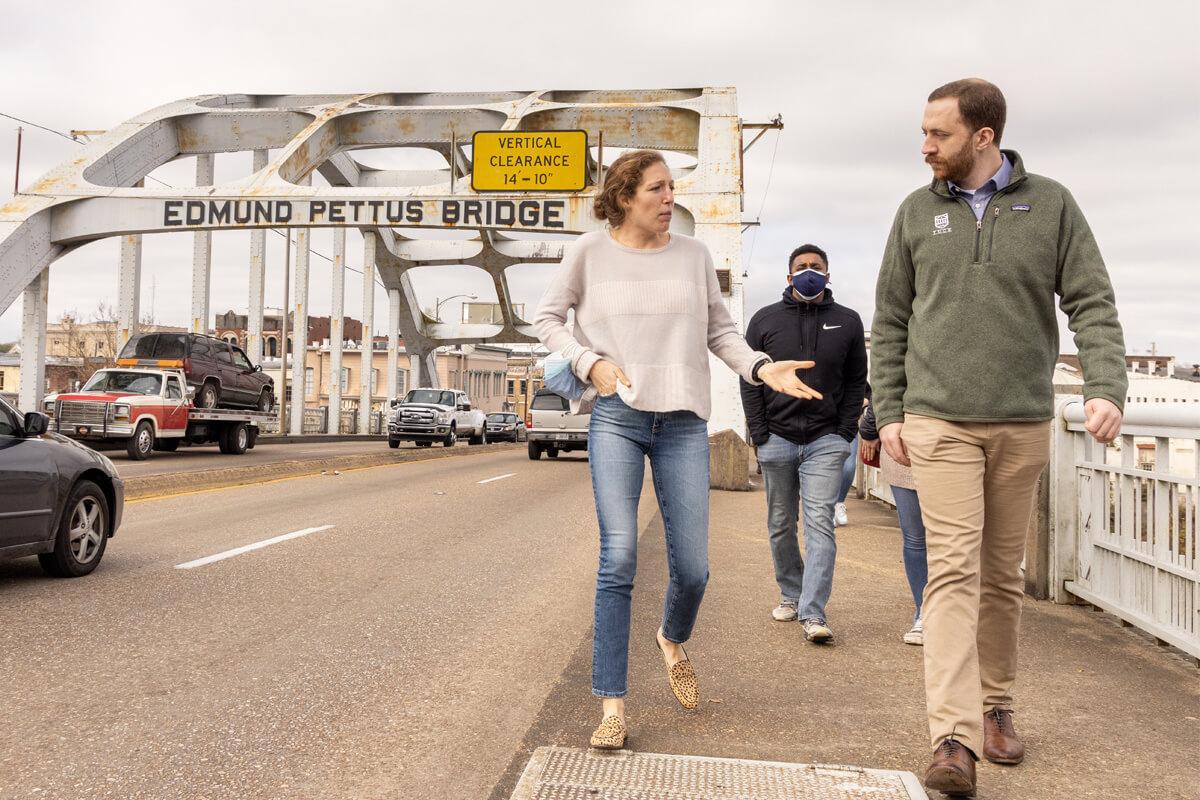
Students walk the Edmund Pettus Bridge.
The trip culminated in Selma, where the group went to the Dallas County Courthouse, just a few steps from the Edmund Pettus Bridge and a site of protests and police brutality during the voting rights movement. They met with the district attorney for the county, Michael Jackson, and then toured Selma’s residential and historic district and the Live Oak Cemetery before visiting Brown Chapel AME Church and walking across the Pettus Bridge. On the final day, the students met with Kamal Hingorani, interim dean of ASU's College of Business Administration, and school faculty, along with representatives from the Alabama Governor’s office. To end the trip, the group had dinner with Rod Scott T’86, a longtime member of the Alabama House of Representatives.
I’ve since been reflecting a lot on the significance of an individual person or leader in making change. That generosity of self has really stuck with me.”
Lulu Carter T’22
As with many Tuck GIX trips, the Freedom Riders GIX was a personal-scale group, with eight students participating. Each student had their own motivations for attending this unique experience, and their own plans for implementing what they learned. For Kukharchuk, who was born and raised in Ukraine, the trip was a chance to better understand American culture and history, and to learn more about the realities of racial bias. As a consultant after Tuck, he intends to promote diverse hiring practices and recruitment.
Drew Hazel T’22, who hails from Philadelphia, saw the trip as an opportunity to learn more about the history of slavery, segregation, and marginalization in the U.S., and a chance to travel to the Deep South for the first time. “The whole Alabama leg of the trip was really impactful for me,” Hazel says, “seeing the Legacy Museum and the Memorial for Peace and Justice, which memorialized atrocities and lynching. It really made me think about these things and process them.” Hazel plans to be a mentor for people impacted by racial bias, donate to non-profits that work toward racial justice, and push for more diverse recruitment in the corporate world.
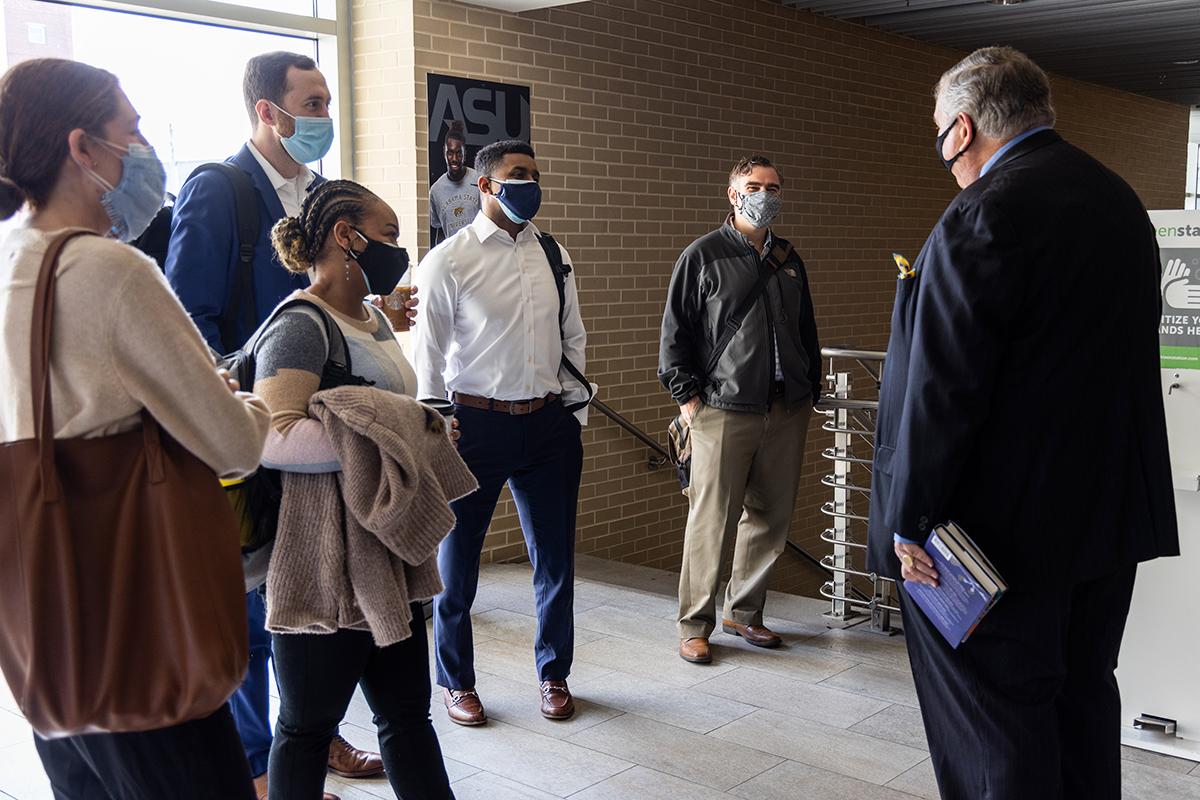
Tuck students met with administrators and faculty at Alabama State University, an HBCU in Montgomery, Alabama.
For Lulu Carter, the trip was not only a chance to hone her leadership skills through the lens of diversity, but also to spend more time with Professor Bell Smith, whom she would “follow to the ends of the earth,” she says. Carter lived in New Orleans during some Black Lives Matter events, an experience that caused her to think deeply about “how I could support an equitable workplace wherever I go from here,” she says, “and how I could raise my own awareness and push out against my own biases and blind spots.” The Freedom Riders GIX has built upon her interest in driving economic opportunity and jobs with dignity to low-income regions of the Southeast. “I’ve been reflecting a lot on the significance of an individual person or leader in making change,” she says. “That generosity of self has really stuck with me.”
It’s clear that the students absorbed the leadership lessons Bell Smith and Kleinbaum intended. Those included the ideas that business has an important role to play in eradicating institutional racism, that racism has deep roots that need to be understood, and that leaders need to stand up and advocate for change. “Leadership for me is: How are you making a difference?” Bell Smith says. “How courageous are you going to be when it’s your turn to speak up? I wanted students to know that as a leader, whether you have a minority representation or not, you still have a responsibility and a voice.”
